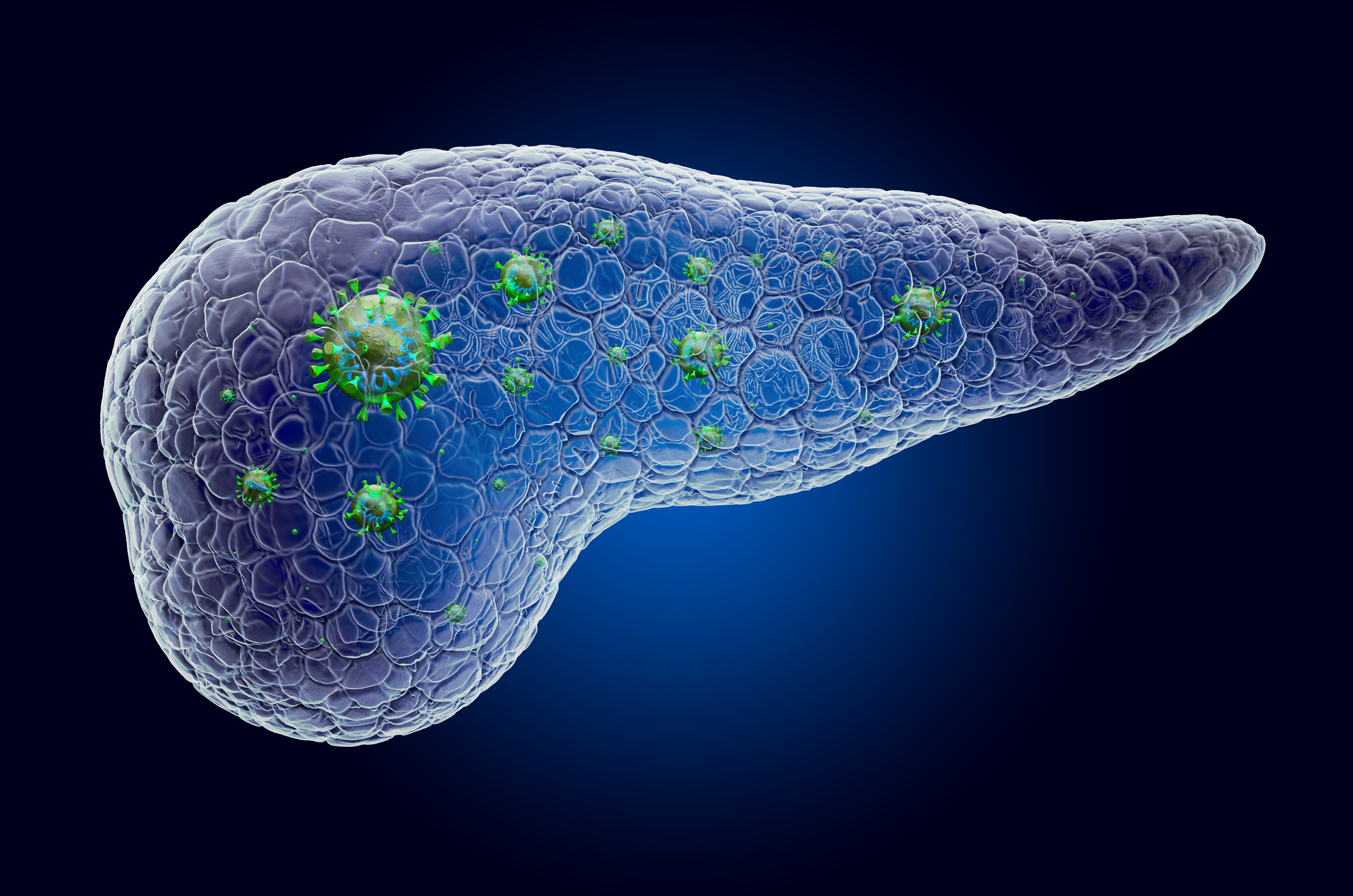Get Easy Health Digest™ in your inbox and don’t miss a thing when you subscribe today. Plus, get the free bonus report, Mother Nature’s Tips, Tricks and Remedies for Cholesterol, Blood Pressure & Blood Sugar as my way of saying welcome to the community!
Can a COVID-19 infection cause diabetes?

Every day, it seems that research is finding another organ system that is vulnerable to damage by a COVID-19 infection.
The lungs, clearly, are affected. And the condition known as “long COVID” results in damage to the kidneys, heart and nerves. It can cause blood clots and gangrene.
Thyroid damage has also been reported as a result of long COVID.
Now, researchers have added yet another organ to the list of those COVID-19 can impact over the long term: the pancreas.
Could diabetes be in your future following a COVID-19 infection? Here’s what the research has found…
COVID-19’s link to new cases of diabetes
An Italian study has found that about half of the patients admitted to the hospital for COVID-19 during the early months of the pandemic had new cases of hyperglycemia (high blood glucose). They also had poorer outcomes from COVID-19.
The study is one of the first to show that COVID-19 has a direct effect on the pancreas, according to Dr. Paolo Fiorina, lead author Paolo Fiorina, Harvard Medical School lecturer on pediatrics at Boston Children’s Hospital. “These people were not diabetic before, but during admission, about 46 percent of the patients were found to have new hyperglycemia.
The study assessed the health of 551 people admitted to the hospital in Italy from March 2020 through May 2020. Their health was also observed during a follow-up period that lasted six months beyond hospital admission.
Compared with patients who had no signs of glucose level abnormalities, the hyperglycemic patients had:
- longer hospitalizations
- worse clinical symptoms
- a higher need of oxygen
- a higher need of ventilation
- more need of intensive care treatment
What does it mean? “It indicates that the pancreas is another target of the virus, affecting not only the acute phase during hospitalization but potentially also the long-term health of these patients,” says Dr. Fiorina.
Can we expect a diabetes pandemic next?
Fortunately, most cases of acute hyperglycemia appeared to resolve following care, but about 35 percent of these patients still had high blood sugar at six months after infection.
To learn more, patients were fitted with a glucose sensor upon admission — and here’s what the researchers learned…
The hyperglycemic patients had abnormal hormone levels. Not only were they producing too much insulin, but they also had abnormal levels of proinsulin — a precursor to insulin — and impaired islet beta cells which make and secret insulin.
Said Dr. Fiorina, “Basically, the hormonal profile suggests that the endocrine pancreatic function is abnormal in those patients with COVID-19 and it persists long after recovery.”
Because cytokines have been found to wreak extensive havoc for COVID-19 patients, Dr. Fiorina’s team decided to try blocking a particular inflammatory cytokine, IL-6.
It worked: Patients treated with anti-IL-6 therapy, tocilizumab, had greater improvement in blood sugar control compared with those who did not receive the medication.
But while the glucometabolic abnormalities declined in some patients as the COVID-19 infection did as well, other problems remained…
Post-infection, many patients experienced higher blood sugar levels following meals and produced abnormal pancreatic hormones.
And in these cases, just treating with normal antidiabetic drugs may not be the answer because of the inflammatory cytokine issue.
“If you keep targeting and blocking insulin, but you have a strong and chronic inflammation, it may lead to chronic damage,” said Fiorina.
This is just more proof that a COVID-19 infection is unlike previous respiratory infections.
Editor’s note: Are you feeling unusually tired? You may think this is normal aging, but the problem could be your master hormone. When it’s not working, your risk of age-related diseases skyrockets. To reset what many call “the trigger for all disease” and live better, longer, click here to discover The Insulin Factor: How to Repair Your Body’s Master Controller and Conquer Chronic Disease!
Sources:
Diabetes Danger? — Technology.org
Acute and long-term disruption of glycometabolic control after SARS-CoV-2 infection — Nature Metabolism













